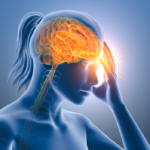Can Xanax Cause Headaches?

What Are Headaches?
Headache is a pain in any region of the head. Headaches may occur on one or both sides of the head, be isolated to a certain location, radiate across the head from one point, or have a viselike quality. A headache may appear as a sharp pain, a throbbing sensation, or a dull ache.
Most headaches happen in the nerves, blood vessels, and muscles that cover a person’s head and neck. Sometimes the muscles or blood vessels swell, tighten, or go through other changes that stimulate the surrounding nerves or put pressure on them. These nerves send a rush of pain messages to the brain, and this brings on a headache.
According to the World health organization, headache affects 1.7–4% of the world’s adult population. The most common type of headache is a tension headache (also called a muscle-contraction headache). Tension headaches happen when stressed-out head or neck muscles squeeze too hard.
Pain that’s especially sharp and throbbing can be a sign of a migraine headache. Migraine headaches aren’t as common as tension headaches. But for teens who do get them, the pain can be strong enough to make them miss school or other activities if the headaches aren’t treated.
If you’re looking for the culprit of the throbbing pain in your head, you may want to jot down the names of the medicines you take. All medications have side effects, and sometimes a headache is one of them.
A wide variety of medicines can cause headaches. If your head starts hurting, don’t stop your medicine on your own. It might be time to check the likely cause of your discomfort. In this article, we shall be looking at the relationship between Xanax and headaches.
What is Xanax?
Xanax is a brand of alprazolam, a powerful benzodiazepine that is used to treat anxiety and panic disorders by decreasing abnormal excitement in the brain. The medication comes in the form of a tablet that quickly dissolves in the mouth, an extended-release tablet, or a concentrated oral solution.
Benzodiazepines can have therapeutic anti-anxiety, anti-convulsant, muscle relaxing, and sedative effects. Xanax works by increasing the effects of a brain chemical called gamma-aminobutyric acid (GABA), which promotes calmness and produces a relaxed feeling. The drug decreases the level of excitement in the brain to treat anxiety and panic disorders.
Alprazolam is among the most prescribed benzodiazepine drugs in the U.S. and is among the benzodiazepines most often found in the illegal market, according to the Drug Enforcement Administration.
Xanax is often prescribed for mental health disorders related to anxiety. It can be used to treat general anxiety, panic disorder, social anxiety disorder, and phobias. It can also be used to treat seizures. For people who suffer from anxiety, it can create a sense of relief to focus on their lives without issues of anxiety or phobias plaguing them. When used as prescribed, it can calm people down and make them feel relaxed.
Xanax can also reduce physiological symptoms of anxiety and fear, such as a racing heart or hyperventilation. These drugs are so often prescribed because they work well on anxiety and they’re cheap.
However, many people use Xanax for nonmedical reasons, taking it in larger doses or more frequently than prescribed because it can create a euphoric feeling, especially at higher doses. Xanax tends to start acting quickly after a person takes it, and the euphoric effects of the drug will usually manifest themselves within about an hour after taking it.
A tendency has grown in some social circles to view Xanax, as a type of “alcohol” in pill form. It’s become socially acceptable among these groups of friends to get together and share Xanax with one another. Of the 30.5 million people who used benzos in 2015, 17.1% misused them. Misusing Xanax or combining it with other substances like alcohol can amplify its effects, but the results can also be deadly.
Along with recreational use, many people rely on Xanax to deal with issues like situational anxiety without having to commit to therapy, which can be expensive and time-consuming. Xanax is popular in America, for example, because there is a tendency for people to love things that are looked at as a quick fix. Xanax isn’t a long-term medication, so some people “take it when they need it” for relief. The temporary relief they feel can help in a fast-paced world with constant exposure to negative world news, stressful jobs, and uncertainty.
Can Xanax cause headaches or migraines?
Yes, taking Xanax can cause headaches or trigger a migraine, it is listed as one of the less common side effects of Xanax. The risk of Xanax-induced headaches increases especially when you are tapering off the medication and the brain is trying to adjust back to normal neurotransmitter levels.
Benzodiazepines like Xanax are complex drugs that interact with neurotransmitters like serotonin and GABA. They cause an increase in serotonin and dopamine levels, while also increasing GABA activity.
Serotonin is a chemical necessary for communication between nerve cells. It can cause the narrowing of blood vessels throughout the body. When serotonin levels change, the result for some is headaches, a migraine, or a hangover-like feeling.
What can I take for Xanax-induced headaches?
Taking Tylenol (acetaminophen) for Xanax-induced headaches is safe and has been shown to provide relief. However, avoid taking acetaminophen combination products for Xanax-induced headaches so as to avoid dangerous drug interactions.
If you suspect your headache is caused by Xanax, talk with your doctor about your side effects. Do not stop taking the medicine until you have spoken with your doctor.
Think about whether nonprescription medicines, alcohol, or caffeine are causing your headache. Try limiting the use of these to see if your headache goes away. Use caution with alternative therapies. Some alternative therapies may also cause headaches. Talk to your doctor about any alternative therapies you are using when taking Xanax.
Xanax Interactions
• Do not use this medicine if you are also using ketoconazole or itraconazole.
• Some foods and medicines can affect how alprazolam works. Tell your doctor if you are using any of the following: Amiodarone, carbamazepine, clarithromycin, cimetidine, cyclosporine, desipramine, diltiazem, ergotamine, erythromycin, fluconazole, fluoxetine, fluvoxamine, imipramine, isoniazid, nefazodone, nicardipine, nifedipine, paroxetine, propoxyphene, sertraline, or theophyllineBirth control pillsSeizure medicine
• Tell your doctor if you use anything else that makes you sleepy. Some examples are allergy medicine, narcotic pain medicine, and alcohol.
• Do not drink alcohol while you are using this medicine.
• Do not eat grapefruit or drink grapefruit juice while you are using this medicine.
• Do not stop using this medicine suddenly. Your doctor will need to slowly decrease your dose before you stop it completely.
• Keep all medicine out of the reach of children. Never share your medicine with anyone.





